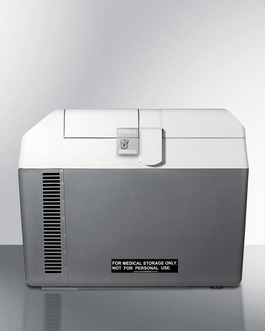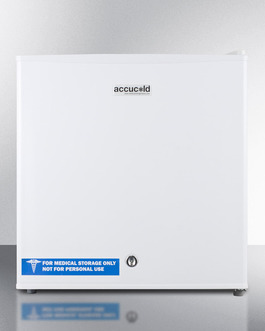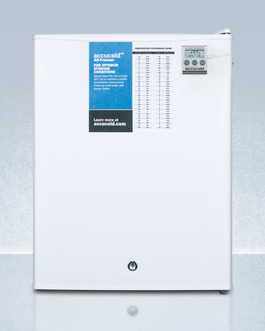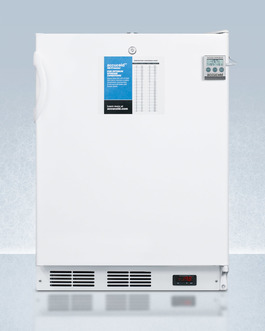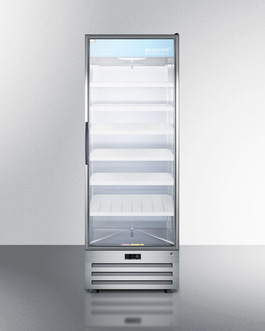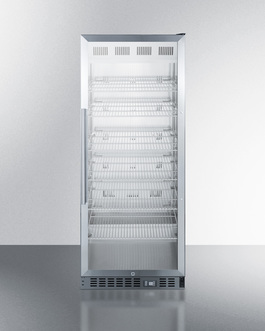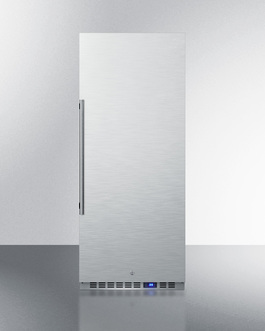Protect Vaccines In the Event of Power Loss
Any facility storing vaccines must have a trusted system to follow in case of power failure. Here are a few key points to keep in mind when making your plans for safe cold chain management during power outages.
Short-Term Power Outage
Do not open refrigerator or freezer doors at the immediate start of the outage. Many blackouts will not last long and most units will maintain their interior cold temperature if the door remains closed. As soon as the power returns, be sure to record the interior temperature with extra care, paying close attention to maximum temperature observed and duration of exposure. To ensure that these vaccines are still effective, contact your local health department and keep these temperature records on hand. While many vaccines will retain their properties in slight temperature changes, certain sensitive vaccines such as MMR or Varivax may be unusable. Get the facts before discarding or administering any exposed vaccines.
Temperature Monitoring
Monitoring the interior temperature after a power outage should be your priority in vaccine protection. If you have a battery powered thermostat, record the temperature readings and remember to mark the time. If not, wait until power is restored. DO NOT open the door to take temperature readings, as doing so will expose contents to ambient higher temperatures. Remember to be extra diligent in recording temperature following an outage, keeping track of maximum and minimum temperatures until the unit stabilizes.
This is a key reason why all refrigerators that are storing vaccines should be equipped with a temperature logger. Many loggers are battery powered (or include back-up batteries) and will continue to record during a power outage.
Alternate Refrigeration
Keep a generator-powered refrigerator in your facility to store vaccines in case of power failure. Remember to continue to monitor the interior temperature in this unit, as well as the interior of the original unit as soon as power is restored.
The CDC recommends vaccine providers establish working agreements with other facilities (such as hospitals and health departments) to serve as emergency storage facilities in case of power outages. Having this preexisting relationship will be valuable in such an event.
Transporting Vaccines
If you are moving vaccines to another facility, take extreme caution in transporting these items to maintain the cold chain. Here are a few points to keep in mind:
1. Keep refrigerator and freezer doors closed, opening them only when absolutely necessary to transfer materials to their travel container. Make transportation preparations before opening the door to ensure a cold-safe environment for as long as possible.
2. Transport the materials using properly insulated containers. Portable DC powered refrigerators and freezers are a great solution to this problem, as they can plug into the lighter socket of any vehicle and act as a regular refrigerated unit.
3. Monitor the temperature during the transportation process.
4. Take extra care in keeping records of all stored vaccines, noting the vaccine type, date, time, and temperature before and after the transportation process.
5. Pay attention to the individual needs of each vaccine type. Certain vaccines will remain effective when refrigerated with cold packs, but others, such as Varicella, may require temperature control with dry ice packing.
Keep Track of Exposed Vaccines
Identify which vaccines have been exposed to ambient temperature by marking them with the time power was lost. Do not discard these materials, as they may still be effective and safe to administer. Simply record the temperature details and keep them separated from any other stored vaccines.
Vaccines are costly materials with precise cooling needs. Facilities must be prepared to handle power outages and refrigerator breakdowns in order to save thousands of dollars and product integrity. For more information about safe vaccine handling and storage, contact your local or state health department.
Additional Resources:
How To Select a Medical Refrigerator
Safe Vaccine Handling
Protection During Power Outages
Options For Temperature Monitoring
FAQs About Medical Refrigeration
Temperature Conversion Chart
Accucold Resources
Studies & Experiments:
Comparing Medical & Dorm-Style Refrigerators
Chart Recorders Vs. Data Loggers
The Importance of Glycol
The Case For Factory-Installed Probes
Accucold Refrigeration:
Performance Series Feature Packages
Vaccine Series Refrigeration
Medical & Laboratory Refrigerators
Medical & Laboratory Freezers
Low Temperature Freezers
Interior Locking Compartments
Calibrating Your Accucold Equipment
